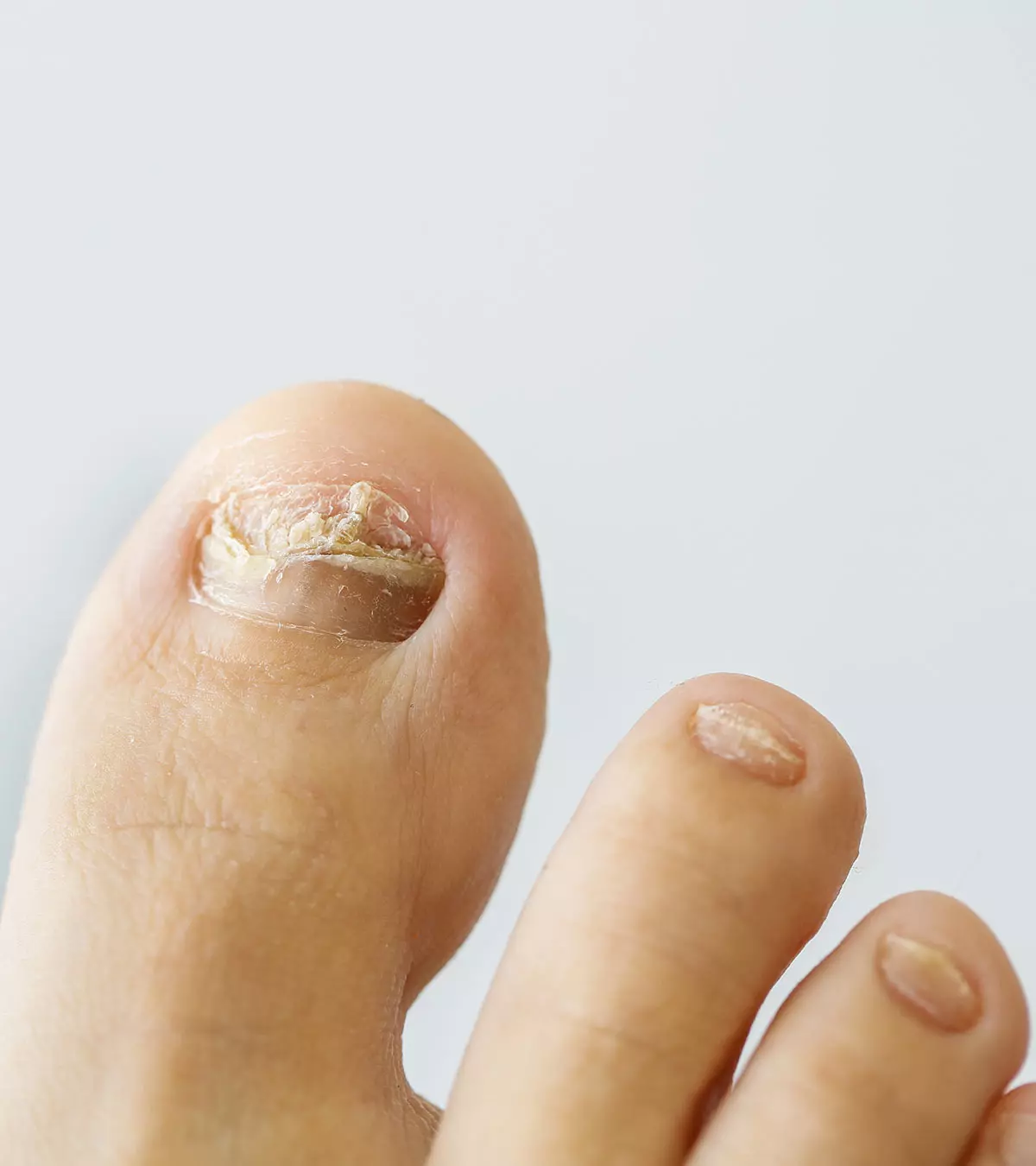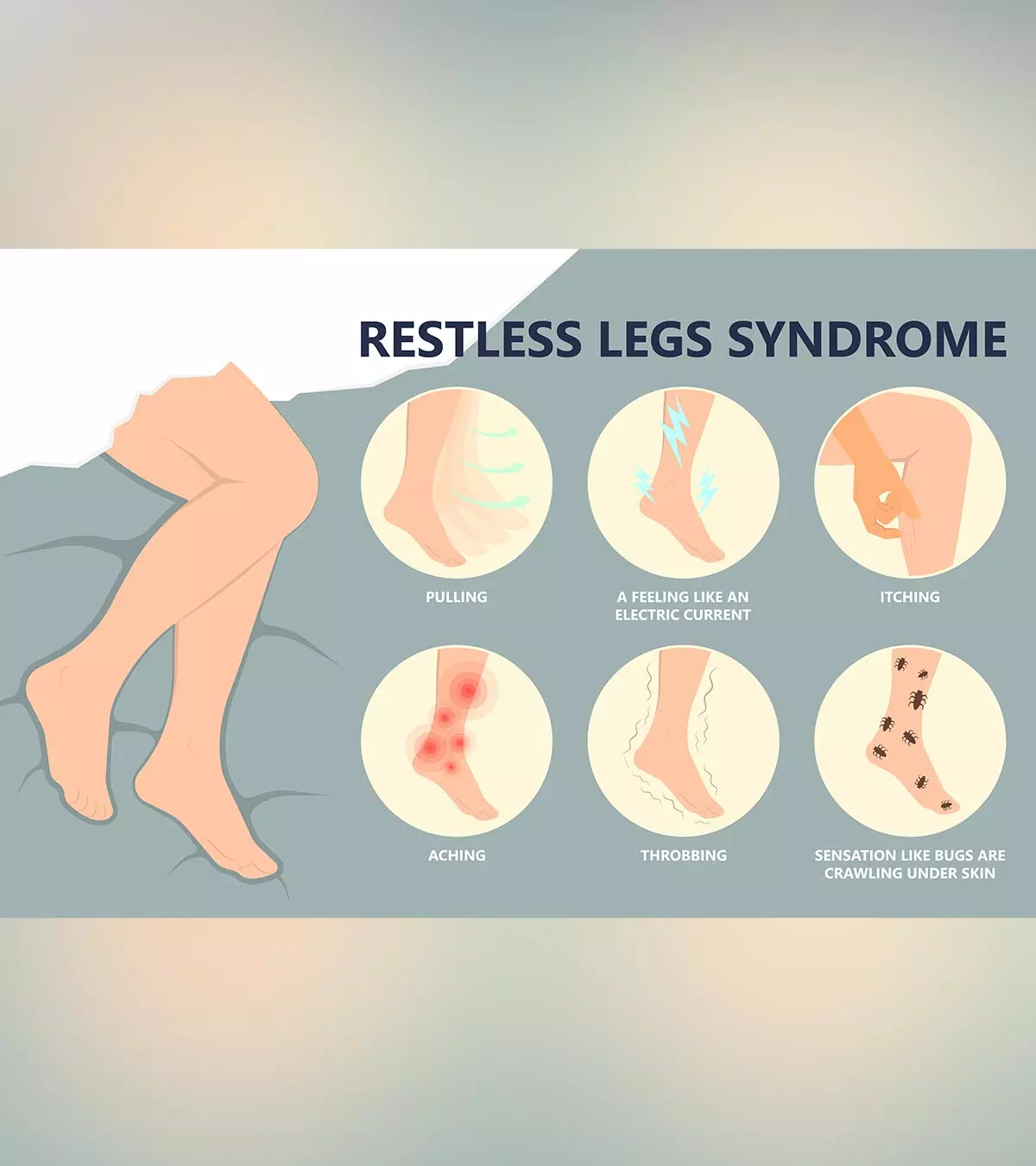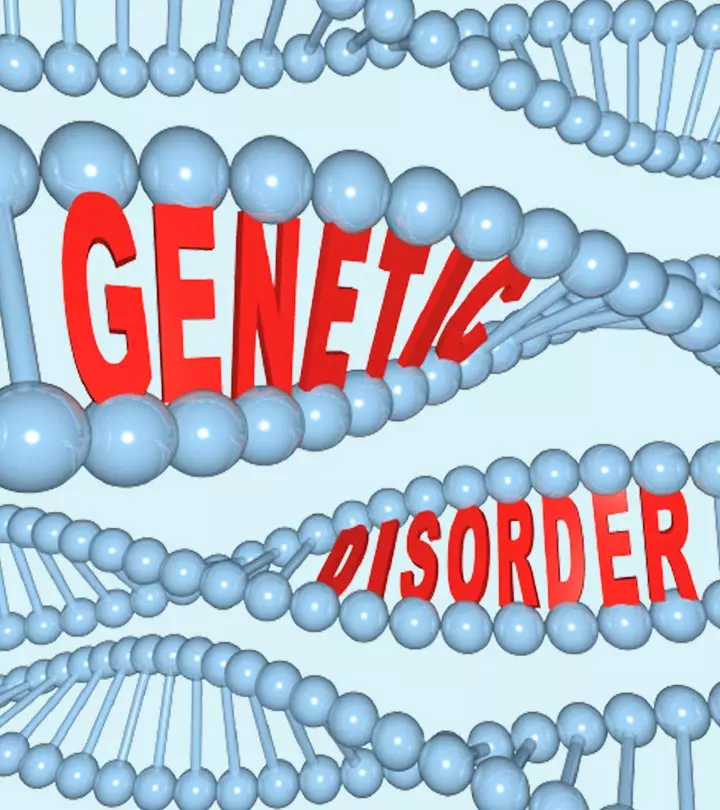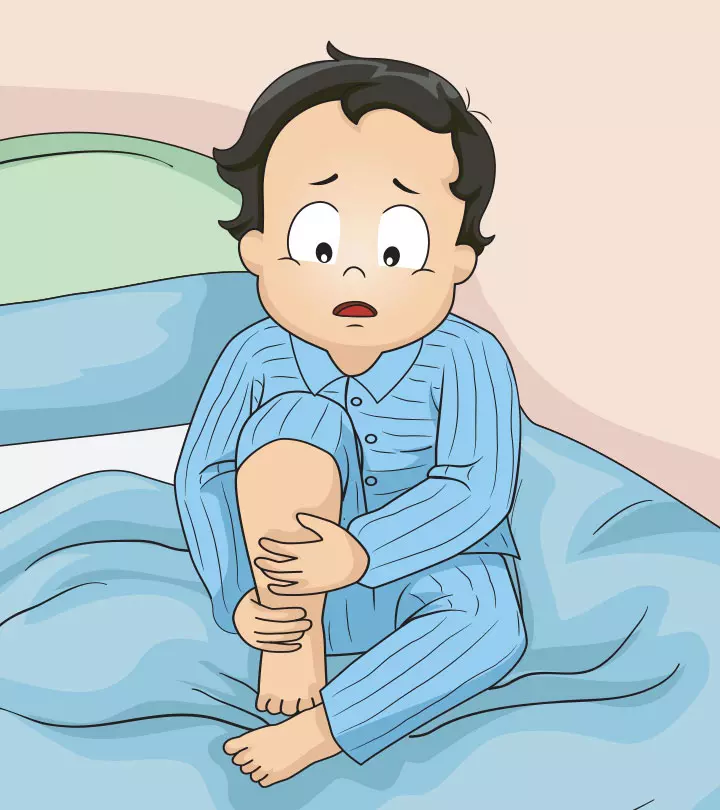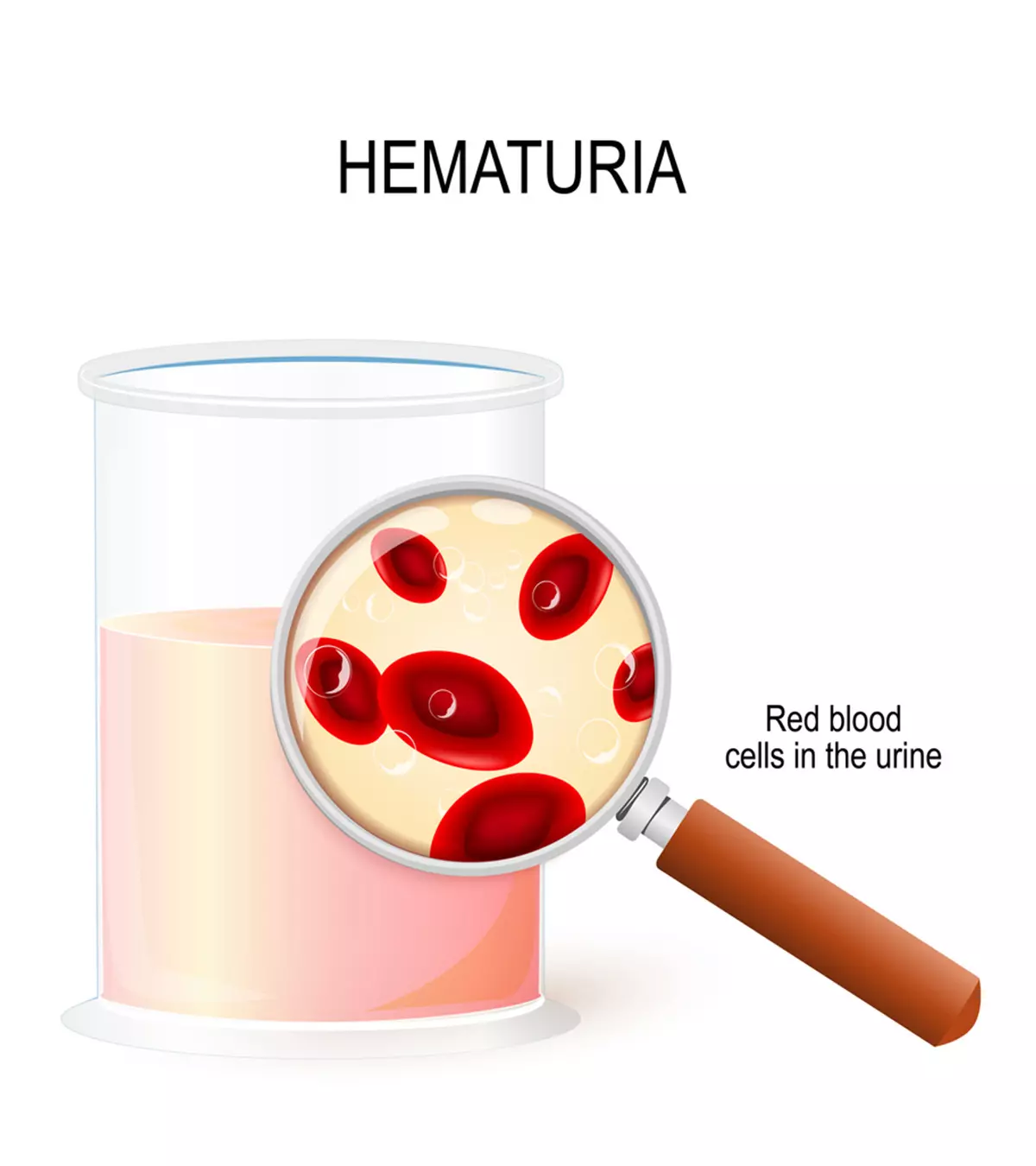
image: iStock
Blood in the urine (Hematuria) in children or pediatric hematuria is a condition that often occurs due to problems in kidney health. The kidneys filter the urine, ensuring no red blood cells (RBCs) in it. However, in hematuria, the kidneys fail to keep out blood from the urine.
Hematuria may occur due to kidney abnormalities or urinary tract abnormalities, with most underlying causes of benign nature. The condition is common among children.
Read on to learn about the causes, types, risk factors, symptoms, diagnosis, treatment, and prevention of hematuria in children.
Key Pointers
- A child may suffer from hematuria or blood in urine due to bladder or kidney infections, stones, or some OTC medications.
- Hematuria may be accompanied by fever, nausea, abdominal pain, or swelling in the lower body parts.
- Urinalysis, CT scan, or kidney ultrasound can diagnose hematuria.
- The treatment depends on the cause and is usually composed of antibiotic treatment, pain relievers, or dietary modifications.
Types Of Hematuria
Hematuria can be of two types, namely microscopic hematuria and gross hematuria (1)
- Microscopic hematuria is not visible to the naked eye and is usually detected via microscopic examination of the urine, generally during urinalysis, to diagnose the causes of urinary symptoms. This may often resolve without treatment and may not cause any signs and symptoms in some children.
- Gross hematuria is visible to the naked eye. Urine may appear red or tea- or cola-colored. This can be with or without symptoms and is usually not painful. Children may complain of pain if they pass blood clots in the urine or if other signs and symptoms accompany hematuria.
Microscopic hematuria is often not a cause for concern in healthy children. However, doctors may recommend diagnostic tests if the child has high blood pressure, proteinuria (proteins in the urine), or chronic kidney diseases.
Risk Factors And Causes Of Hematuria In Children
Blood or red blood cells may leak into the urine due to abnormalities in the kidney or problems with urethraiA tube or a duct that transports stored urine from the urinary bladder to outside of the human body. and bladder health. The following conditions are some of the common causes of hematuria in children (1) (2) (3):
1. Bladder infections (cystitis)
2. Kidney infections (pyelonephritis)
3. Injury or trauma to the kidneys or another part of the urinary system
4. Certain medications such as some OTC pain relievers, blood thinners (heparin, warfarin) and sulfa-containing drugs, penicillins, and cyclophosphamide (Cytoxan)
5. Strenuous exercise
 Quick fact
Quick fact
Image: Shutterstock
6. Abnormal urinary tract structures such as cysts (fluid-filled sacs) in the kidneys
7. Inherited diseases such as Alport’s syndrome, inherited nephritis, polycystic kidney disease, and sickle cell disease
8. Kidney stones and mineral imbalance in the urine, such as high levels of calcium
9. Glomerulonephritis — inflammation of the glomeruli, the filtering units of the kidneys
10. Post infectious glomerulonephritis (PIGN) — kidney inflammation after a viral or bacterial infection.
11. Familial idiopathic hematuria — when blood in urine is present without any specific cause, which may often run in families.
 Point to consider
Point to consider12. Hemolytic uremic syndrome (HUS), which may result from inflammation of the small blood vessel and injury in the kidneys
13. Bladder or kidney tumors
14. Bleeding disorders such as hemophilia and Von Willebrand’s disease
Children who had a recent kidney infection or are under certain medications are at an increased risk for hematuria. Also, children with a positive family history of hematuria and kidney disease have a higher risk than others. Runners and joggers may also be more prone to hematuria than other athletes.
 Quick fact
Quick factSigns And Symptoms Associated With Hematuria

Image: Shutterstock
Hematuria is not a disease in itself and is often a sign or indication of underlying conditions. It may not cause specific signs and symptoms in many children. However, in some cases, painful urination can be seen in children with blood clots in the urine or those whose urine flow is blocked.
The signs and symptoms associated with hematuria may vary depending on the underlying causes, including (3)
- Periorbital and lower extremities edema (swelling)iMild to severe swelling around the eye region, often caused by an infection or other medical ailments.
- Reduced urination
- High blood pressure
- Fever
- Chills
- Flank and abdominal pain
- Nausea and vomiting
- Frequent urination
If you suspect hematuria in your child or notice any of these symptoms along with blood in urine, keep a record of your child’s symptoms, daily activities, foods, and any medicine they might be taking. This information can help the doctor assess your child’s condition and make the right diagnosis.
When To See A Doctor?
All children with gross hematuria require medical evaluation. You may consult the pediatrician if your child manifests the following.
- Urinary symptoms such as painful urination and belly or flank pain
- Fever

Image: Shutterstock
- Swelling
- Oliguria (decreased urine production)
- Lethargy
- Headaches
- Irritability
- Joint pain
- Skin rashes
- Bleeding from any part of the body
- Strenuous exercise-related hematuria
Diagnosis Of Hematuria
Diagnosis of hematuria usually begins with physical examination and a review of the child’s family history.
The following tests are ordered in children with blood in urine to identify the underlying cause (1) (4).
- Urine tests are done to look for blood in the urine. Calcium, proteins, and creatinineiA waste product of muscles removed from the kidneys through urine. levels are also evaluated during urinalysis.
- Kidney ultrasound may help visualize the kidney structures.
- Blood tests may help determine signs of infections, kidney function, and other factors.
- Kidney biopsy may be done for children with microscopic hematuria, proteinuria, a family history of kidney disorders, and high blood pressure.
- Urine tests are done for several months in children who have microscopic hematuria with normal kidney function.
- CT scan with contrast may help visualize the kidneys and ureters and help diagnose bladder abnormalities.
- Cystoscopy, in which a flexible telescope is inserted through the urethra and into the bladder, to look for bladder and urethra abnormalities, may be done.
Doctors may also order additional tests to identify the underlying cause depending on the initial results or symptoms. A genital examination may also be done to exclude the chance of bleeding from the genital system. Moreover, since hematuria may recur or be present due to a chronic condition, follow-up tests are essential for closely monitoring the child’s condition.
Treatment For Hematuria
The treatment options for hematuria may vary depending on the underlying causes (5).
1. Urolithiasis (stones): Adequate fluid intake is recommended to move the stones in initial management. Urine alkalinizationiA treatment that minimizes the levels of acid in the urine by altering its pH levels. for uric acid stones and urine acidification for calcium phosphate stones are done in the next step. Pain relievers and medical therapy are often prescribed. Larger stones may be removed via lithotripsy or surgery.
2. Genetic disorders: Supportive treatments to relieve the symptoms are given for genetic disorders, such as Alport syndromeiAn inherited kidney disease caused due to a mutation in a gene that codes for the collagen protein. , since there is no cure. ACE inhibitors and ARB blockers are usually prescribed to manage hypertension and proteinuria. It is advised you take the child to a pediatric nephrologist for regular check-ups and optimal management.
3. HUS: Hemolytic uremic syndrome in children is managed with supportive care, such as blood transfusion. Fluid and electrolyte balance is also maintained via the parenteral and enteral routes. Hemodialysis (renal replacement therapy) may be required in severe cases.
4. UTIs: Urinary tract infections (UTIs) are treated with antibiotic therapy. Trimethoprim-sulfamethoxazole or first-generation cephalosporin therapy is often prescribed, and hydration is maintained with oral fluids in most cases and IV fluids in severe cases that require hospitalization.
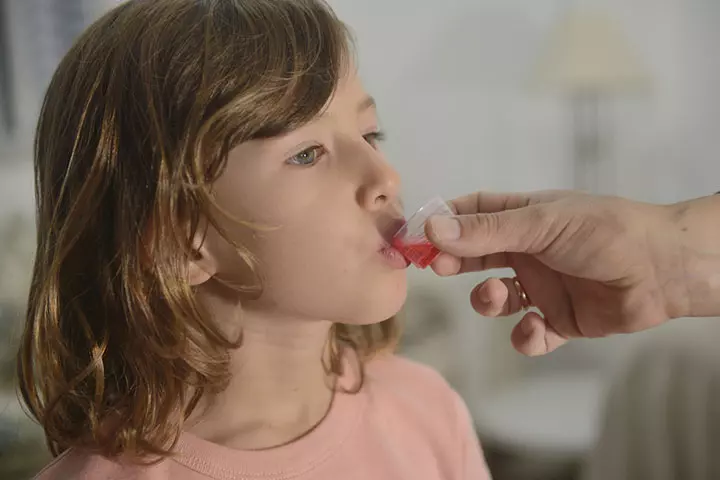
Image: Shutterstock
5. PIGN: Post-infectious glomerulonephritis (PIGN) is treated with antibiotic therapy and salt restriction with or without fluid restriction. Loop diuretics are also often prescribed.
6. Bleeding disorders: These are treated with infusions of fresh frozen plasma or clotting factors.
7. Kidney and urinary tract injuries: Traumatic injuries are managed depending on the location and severity. Severe trauma may require surgical management.
8. Tumor growths: Urinary system cancer and tumor cases are referred to oncologists, and treatment is based on the type and location of the growth. Surgical removal, chemotherapy, radiotherapy, etc., are done accordingly.
Some conditions causing hematuria can be self-limiting, and doctors may not prescribe any specific medications. The child may receive adequate hydration and rest until the cause resolves. You may discuss with the pediatrician to know the management plan for hematuria in your child.
How To Prevent Hematuria In Children?

Image: Shutterstock
Not all cases of hematuria are preventable. However, adequate fluid intake may help prevent kidney stones and urinary tract conditions in some children. Maintaining good hygiene may also reduce the risk of certain common diseases in children. Salt restrictions can be helpful in certain conditions.
Frequently Asked Questions
1. Why is my child’s urine red?
Children can have red urine due to blood. However, red or dark urine does not always indicate blood in the urine. Blood can reach urine from anywhere in the urinary tract, including the kidneys, bladder, ureters, or urethra. Sometimes the presence of blood can be microscopic, and the urine may not be red. This may occur due to food colors or certain medications (6).
2. Is blood in urine an emergency?
Blood in the urine can be due to serious conditions requiring immediate medical interventions or conditions requiring regular treatment. Pediatricians can only determine the underlying cause based on symptoms and tests (7). It is recommended to seek emergency medical care if a child has blood in the urine with or without other symptoms.
3. Can lack of water cause blood in urine?
Urine can be dark in color if your child is not drinking enough water required for their age and activities. Hematuria may occur with frequent and severe dehydration due to kidney damage. Mild dehydration may not cause hematuria. Managing dehydration on time can prevent hematuria in most cases (8).
4. How common is hematuria in children?
Children can often develop hematuria or blood in urine due to various reasons. However, most causes of hematuria in children are self-resolving or easily manageable with appropriate treatment (6).
5. Is hematuria in children always serious?
Hematuria due to factors such as strenuous exercises and certain drugs may not always be a serious cause of concern and may resolve on its own. However, it is important to see a doctor if you notice any signs of hematuria (5)(9).
6. Does a urologist treat hematuria in children?
Yes, urologists, along with pediatricians and experts in pediatric urology, can treat hematuria in children (5).
Hematuria in children is commonly caused by infectious diseases affecting the kidney or bladder. While gross hematuria is easily recognizable since the urine color changes, microscopic hematuria can only be determined with a urinalysisiTests to examine urine for the presence of any diseases or determine the causes of urinary symptoms. . Further, some children may not have any symptoms, and it may be an incidental finding during regular well-child visits. In addition, since the treatment for hematuria may vary depending on the cause, diagnostic tests are unavoidable. If your child has symptoms such as blood in the urine or painful urination, consult your healthcare practitioner.
Infographic: What Are The Common Causative Factors Of Hematuria In Children?
If you’ve observed any sign of bleeding in your child’s urine, it’s critical to get medical attention because this could be a sign of a significant underlying health issue. Also, knowing the cause can help manage the condition more appropriately. So, look through the infographic below to explore some of the reasons for hematuria in children.

Illustration: Momjunction Design Team
Hematuria in children is caused by various factors. This video gives valuable insight into the causes, symptoms, diagnosis, and treatment.
References
1. Hematuria in Children; National Kidney Foundation
2. Hematuria (Blood in the Urine); National Institute of Diabetes and Digestive and Kidney Diseases
3. Hematuria; Harvard Health Publishing
4. Blood in urine (hematuria); St. Clair Health
5. O. N. Ray Bignall and Bradley P. Dixon;Management of Hematuria in Children; HHS Author Manuscripts (2019).
6. Hematuria (Blood In Urine); HealthyChildren
7. Is Blood In Your Urine A Reason To Be Concerned?; Urology Foundation Care
8. What Should I Drink if I Have Blood in My Urine?; MedicineNet
9. Is There Blood in Your Urine? What You Need To Know; Cleveland Clinic
Community Experiences
Join the conversation and become a part of our nurturing community! Share your stories, experiences, and insights to connect with fellow parents.
Read full bio of Dr. Priya Thomas
Read full bio of Dr Bisny T. Joseph
Read full bio of Dr. Ritika Shah
Read full bio of Vidya Tadapatri














